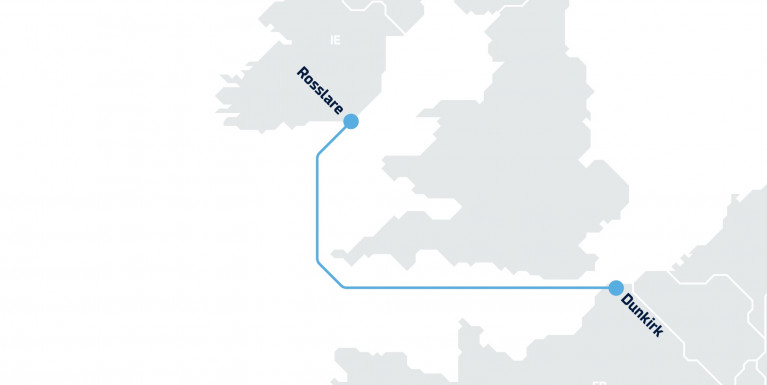In response to news of another Ireland-France ro-ro ferry route, the Irish Exporters Association have welcomed the announcement of the new six-day per week Rosslare Europort-Dunkirk route to be operated by DFDS.
The announcement of the new route to northern France, means an increase of up to thirteen the number of direct Rosslare Europort to Europe ro-ro sailings each way on a weekly basis across all routes, almost doubling its weekly sailings.
Irish traders, that have long used the UK landbridge to transit goods, will welcome this announcement that will enable hauliers to bypass the landbridge where delays are highly likely from 1st January 2021.
The Irish Exporters Association believes that the opening of direct shipping routes will in time limit reliance on the landbridge by Irish supply chain operators. Direct shipping routes to the continent have accelerated during the pandemic. Irish exporters should factor in these developments when consulting their Brexit readiness plans.
Irish Exporters Association Chief Executive, Simon McKeever added: “Today’s announcement is timely, given that we are just over a month away from the end of the UK’s transition period. Routing and customs formalities are two of the main issues that IEA members have concerns about and are planning for. In terms of routing, finding alternatives that are a viable alternative to the landbridge is key.
I very much welcome today’s announcement by Rosslare Europort, that a frequent six-day per week ferry service to Dunkirk will be running from 2nd January. This announcement shows Rosslare Europort’s commitment to Irish traders and that it stands ready to find workable solutions for, and with traders at this challenging time.
From 1st January, lasting changes to our trading relationship with our nearest neighbour will be evident, irrespective of an EU-UK trade deal in place. Ending an almost 50-year membership of the EU’s Customs Union and the Single Market brings new challenges. There is still time to prepare and Brexit proof your businesses, but time is running out. “






























































